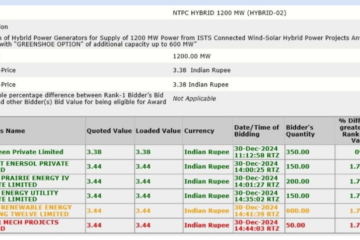India is home to vast reserves of lithium, a crucial element for manufacturing lithium-ion batteries used in electric vehicles (EVs) and energy storage systems. According to the Nitti Aayog-RMI report on energy storage, India has the potential to become a major player in the global battery manufacturing industry by tapping into its lithium reserves. This article is about how the Khanij Bidesh Nigam Limited (KVN), a public sector enterprise under the Ministry of Mines, can be roped in to explore the Indian lithium reserves.
KVN has been tasked with the exploration and development of mineral resources in foreign countries. However, it can also play a significant role in exploring and exploiting the vast lithium reserves in India. The company has the technical expertise and financial resources to undertake geological surveys and feasibility studies to identify potential lithium deposits. It can also partner with international mining companies to bring in the latest mining technologies and best practices to extract lithium from the reserves in a sustainable and eco-friendly manner.
The Nitti Aayog-RMI report recommends that India should adopt a holistic approach to develop its lithium reserves, including the establishment of a domestic lithium value chain. This includes mining, processing, and manufacturing of lithium-ion batteries, which can help reduce the country’s dependence on imports and create jobs in the process. By roping in KVN to explore the Indian lithium reserves, India can take a crucial step towards achieving this goal.

The report also suggests that the government should offer incentives and subsidies to attract private sector investments in the lithium value chain. This can include tax breaks, grants, and other financial incentives to encourage domestic and foreign companies to invest in lithium mining, processing, and battery manufacturing in India. By doing so, India can create a favorable policy environment that can accelerate the development of a domestic lithium value chain and make it more competitive on the global stage.
India has the potential to become a major player in the global battery manufacturing industry by tapping into its vast reserves of lithium. By roping in KVN to explore the Indian lithium reserves, India can take a crucial step towards developing a domestic lithium value chain. The government should also offer incentives and subsidies to attract private sector investments in the lithium value chain, thereby creating a favorable policy environment that can accelerate its development. By doing so, India can reduce its dependence on imports, create jobs, and boost economic growth while contributing to the global efforts to transition towards clean energy.
| Key Points | Details |
|---|---|
| India’s lithium reserves | India has vast reserves of lithium, a crucial element for manufacturing lithium-ion batteries used in EVs and energy storage systems. |
| Role of KVN | KVN can explore and exploit India’s lithium reserves by undertaking geological surveys and feasibility studies to identify potential lithium deposits. It can also partner with international mining companies to extract lithium in a sustainable and eco-friendly manner. |
| Incentives for private sector investments | The government should offer incentives and subsidies such as tax breaks, grants, and other financial incentives to encourage domestic and foreign companies to invest in the lithium value chain in India. |
| Benefits | Developing a domestic lithium value chain can reduce India’s dependence on imports, create jobs, boost economic growth, and contribute to global efforts to transition towards clean energy. |
